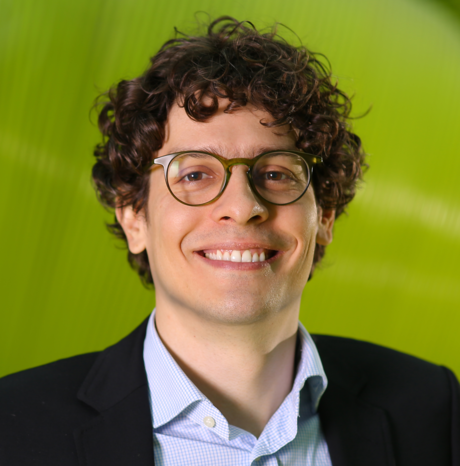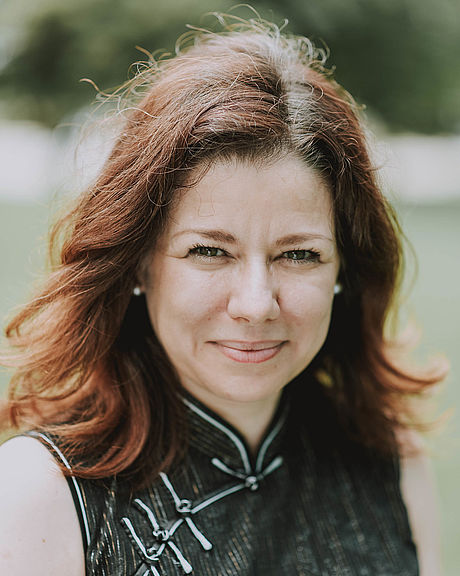Keynote Presentations
Quantum Computing: Prospects and Challenges
Vivien Kendon (Durham University, UK)
Quantum computing promises more efficient computation for some important types of problems, such as simulation of quantum systems, non-convex optimization, and (famously) factoring large semi-primes. However, the first useful quantum computers will be limited in what they can do. Applying them to bottlenecks that are hard for classical computers is key to extracting the best performance out of combined classical and quantum hardware. Interfacing different types of hardware brings many challenges, including mismatched timescales, incompatible data formats, and more complicated logic in the programme flow. The basic concepts that make quantum computing an exciting near term prospect will be explained for non-experts, and some of the more adventurous opportunities explored.
Viv Kendon is associate professor of physics at Durham University (UK). She has a PhD in computational physics from the University of Edinburgh, and worked in Glasgow, London, and Leeds before arriving in Durham in 2014. She is known especially for her work applying quantum versions of random walks to quantum computing. She has been developing quantum computing and applications for the past twenty years, focusing on the underpinning science of computation, and pushing the boundaries of computation beyond conventional paradigms.
Domain Specific Languages to Tame Heterogeneous and Emerging Computing Systems
Jeronimo Castrillon (TU Dresden, Germany)
Programming heterogeneous computing systems is a daunting task and will become even more challenging with the advent of emerging computer architectures. This complexity will make it harder to democratize high-performance computing, which today relies heavily on expert programmers to write efficient parallel code. This talk discusses domain specific languages (DSLs) as a promising avenue to tame heterogeneity for non-expert programmers. The high-level semantics in DSLs improves productivity while enabling coarser-grained optimization and safer code generation. Examples are provided from the domains of big-data, physics simulations and machine learning. The talk closes with insights on how compilers can leverage the high-level semantics of DSLs to optimize for emerging memory technologies.
Jeronimo Castrillon is a professor in the Department of Computer Science at the TU Dresden, where he is also affiliated with the Center for Advancing Electronics Dresden (CfAED). He is the head of the Chair for Compiler Construction, with research focus on methodologies, languages, tools and algorithms for programming complex computing systems. He received the Electronics Engineering degree from the Pontificia Bolivariana University in Colombia in 2004, the master degree from the ALaRI Institute in Switzerland in 2006 and the Ph.D. degree (Dr.-Ing.) with honors from the RWTH Aachen University in Germany in 2013.
Exploring and Mapping Data Landscapes to Rescue Species from Extinction
Dalia Conde (Species360, US and University of Southern Denmark, Denmark)
PASC21 PUBLIC LECTURE
This event is free of charge and open to the general public. The lecture is given in English.
The escalating power of machine learning, big data and exascale computing positions computer scientists with critical methods needed to resolve one of humanity’s greatest challenges as identified by the World Economic Forum 2020: biodiversity loss. The design and implementation of species conservation strategies directly rely on accessing a high variety and volumes of information on species’ genetics, habitat, threats and human use. Despite promising advances in digital infrastructure and open data, we are still struggling to provide essential analytics for effective decision-making. In this keynote talk, we will unveil the results of a global initiative aiming to map, quantify and disseminate species open information to conservation policymakers globally. By developing partnerships to map information and generate development platforms, workflows and storage between open biodiversity repositories, we will outline how computational methods can be applied to novel scientific domains.
Dalia Conde is the Director of Science at Species360 (a leading data-driven conservation NGO) and Associate Professor at the University of Southern Denmark. Conde completed a PhD in Ecology at Duke University before launching the Conservation Demography section at the world-renowned Max Planck Institute for Demographic Research. Her work has been published in Science and PNAS, and Spiegel, Le Monde and National Geographic have reported on her efforts to save species from extinction. Passionate about the power of open data and high-performance computing, Conde collaborates with a broad network of scientists, zoos, aquariums, conservation organizations and policymakers to revolutionize evidence based animal welfare and conservation globally.






